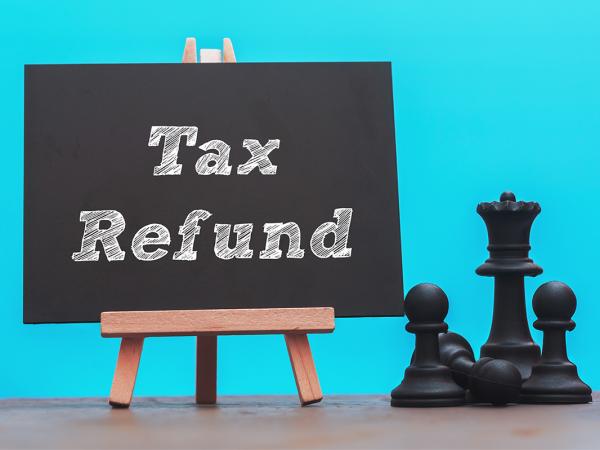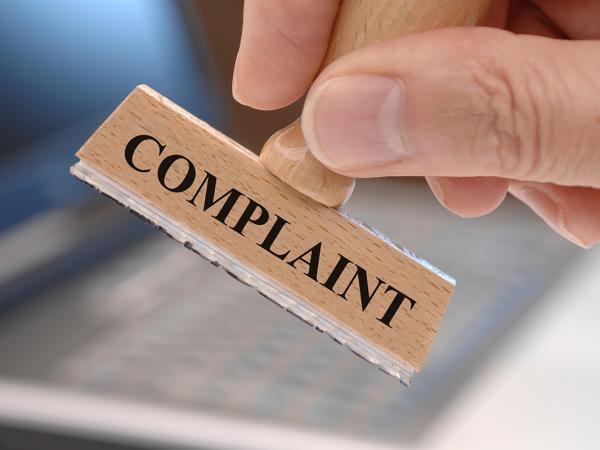Received a 2022/23 tax return penalty but do not know why? Think: tax refund company
Some tax refund companies use the self assessment tax return system to make claims for tax refunds for people. If you have had a tax refund arranged by a tax refund company in the past and now find yourself with a 2022/23 tax return late filing penalty, the two issues may well be linked. Here we explain more and also tell you what steps you may be able to take to put right your position.

Content on this page:
Most taxpayers do not have to complete a formal tax return each year, but some do. For example, you may have to submit a tax return if you are self-employed, if your tax affairs are complex in some way or if you want to claim tax relief for employment expenses of over £2,500. If you do not need to complete a tax return but want to claim some tax relief, then you can use a different process to get it, depending on the tax relief in question. These different processes are often manual, for example, they may involve paper-based forms.
If you have received a 2022/23 tax return penalty and don’t know why, it may be because a tax refund company has registered you for self assessment with a view to claiming tax relief through the tax return. The ordinary deadline for a 2022/23 tax return was 31 January 2024. If the deadline was not met, HMRC will charge you late filing penalties.
We tell you how to deal with the outstanding tax return and late filing penalties below, but first we explain a little bit about why some tax refund companies may be acting in this way.
What are some tax refund companies doing?
You normally only need to enter the complex self assessment system and complete a tax return to make a tax relief claim:
- where the amount of employment expenses exceeds £2,500; or
- where you are claiming specialist reliefs.
Despite this, we know that some tax refund companies may be encouraging taxpayers to register for self assessment in order to claim tax relief. Some companies may do this on your behalf, and a small number may do this without telling you. They may even use your own personal government gateway credentials to register you for self assessment, so it looks to HMRC as if you have registered yourself.
Tax refund companies may want to use the self assessment system because:
- They intend to put in a claim for tax relief for high value employment expenses or specialist reliefs. As we set out in our article, it would be very unusual for these to apply to ordinary taxpayers.
- They intend to put in a claim for another type of relief that doesn’t strictly need to be made through a tax return, but they think that because the self-assessment system is largely automated, it may be quicker or easier to get a refund that way. Again, as we set out in our article, just because HMRC have paid out a refund, that doesn’t mean it is correct.
Nobody, including tax advisers, accountants or tax refund companies, needs your government gateway credentials to undertake work on your behalf. They can work on behalf of their clients using their own ‘agent’ credentials and do not need to ask for individual taxpayers’ login details.
What are HMRC doing in response?
Although some tax refund companies are legitimate and offer a sensible service to their clients, there are multiple issues in the market. HMRC have taken strong steps to tackle unscrupulous tax refund companies recently and have put several processes in place, particularly around paper forms P87, R40 and Marriage Allowance, to help stop invalid or unauthorised claims.
Because of HMRC’s actions, some tax refund companies may have started to focus their activity on the self assessment system. However they may ultimately have had their access to HMRC’s systems stopped and/or may have may have gone out of business. This is why a self assessment record may have been set up but no tax return has ever been completed and submitted.
Do not try and complete any outstanding tax return now, without reading the rest of this article. What you submit may well be incorrect, particularly if it is based on what a tax refund company has said you can claim, or done for you in the past. HMRC can charge penalties to those who submit an inaccurate tax return.
What should I do if I’ve received a late filing penalty?
Firstly, you should check whether there is a genuine reason that you might need to submit a tax return for 2022/23. We have guidance about who needs to complete a tax return on our website.
Where HMRC have issued a tax return to complete but you do not actually meet the criteria for one, HMRC can withdraw it and remove any late filing penalties. They should also remove you from self assessment system altogether, so that tax returns are not issued going forward.
The easiest way to make this happen is to contact HMRC by phone or webchat.
If you need help dealing with HMRC, you should seek professional advice. See our getting help page for more details, including on how to get free tax advice if you are on a low income from the charities TaxAid or Tax Help for Older People.
If you do not ask HMRC to withdraw the tax return, but instead attempt to complete it, then the late filing penalties will ‘crystallise’ and you will have to rely on appealing them to have them removed. The usual grounds for appeal are that you had a ‘reasonable excuse’ but whether reasonable excuse can be argued, depends on your specific circumstances.
What other issues may I now have?
As stated above, there are multiple issues with some tax refund companies - they can cause problems that can quickly grow.
To work out if you have any problems, firstly, you may find it helpful to look at some of the online reviews of the tax refund agent in question, for example on Trustpilot. Typically, where there are issues, other taxpayers will have detailed their experiences and actions that they have taken.
If you need more help or don’t understand how a tax refund company might have ended up with your details in the first place, we suggest you read the comprehensive guidance on tax refund companies that we have on our website.
Where a tax refund company has set up a government gateway account in your name or used your existing government gateway credentials to register for self assessment, HMRC may be able to spot this using security checks. Where they suspect someone’s online tax account is under the control of an agent, they may suspend access while they investigate.
It is obviously welcome that HMRC do this, however it does mean that you might not be able to access things like your Personal Tax Account (PTA). It is important to understand that if a refund company has set your mailing preferences to ‘online’ as part of controlling your account, you will not be getting some correspondence, such as letters or notices.
If your PTA has been compromised by a third party, you will probably not be able to access it or you may see an MCI error (manual correspondence indicator) when you try and log in, although these can also appear in other situations too. There is more information about MCI errors in HMRC’s manual on GOV.UK.
You should contact the Online Services Helpdesk for assistance. You can find the contact details on GOV.UK. There is an established process in place to help you get control back or to help you create a new account. Please be aware that it may take some time for HMRC to investigate your case and for all the issues to resolve, therefore you should make sure to ask HMRC to send any correspondence by post in the interim.
Some people report they have been having trouble getting through to HMRC lately, so you may find these hints and tips on contacting HMRC useful.



